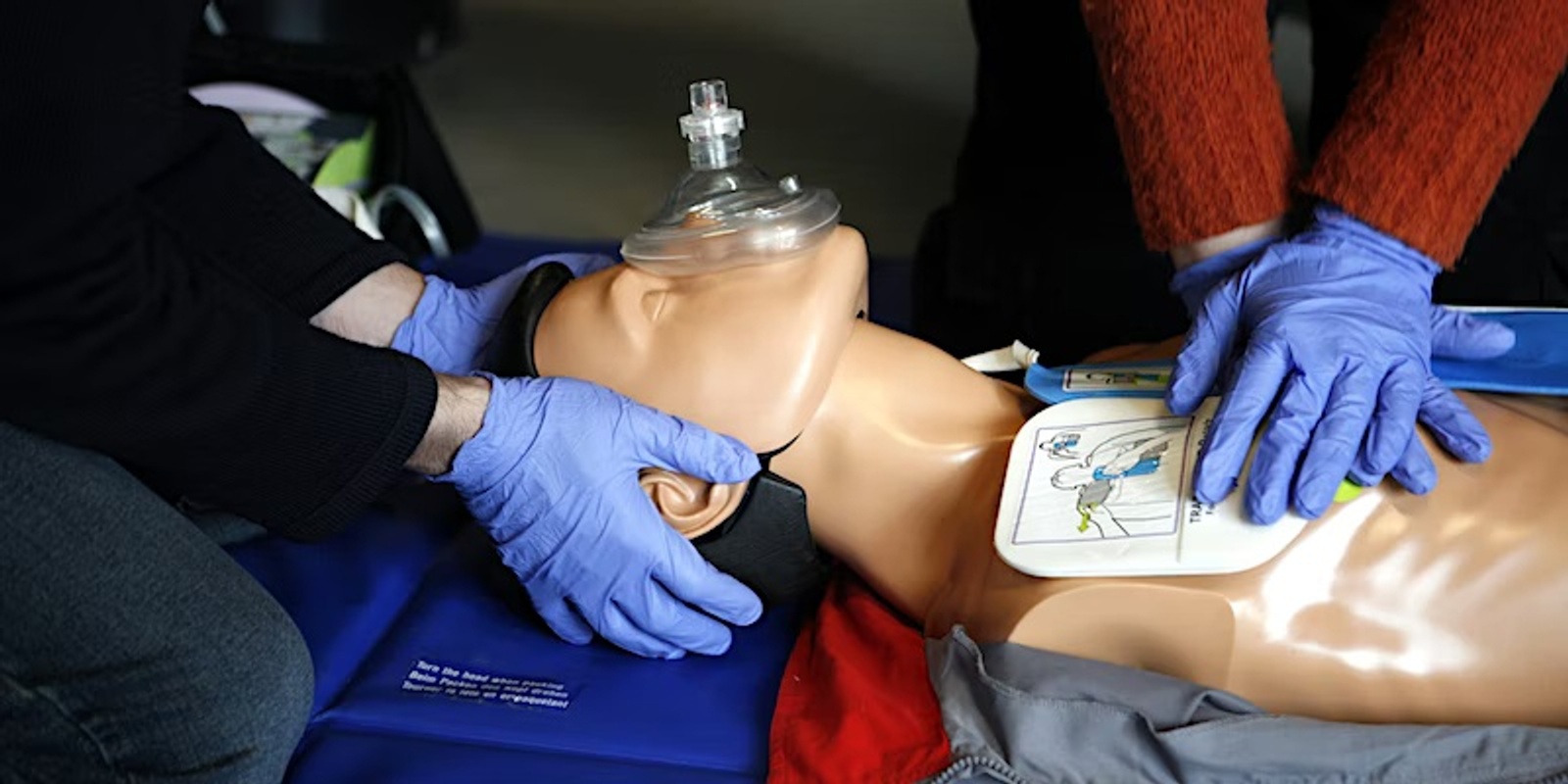Red Cross Basic Life Support (BLS) Training & Certification
Event description
Best For Professional Rescuers & Healthcare Providers
Basic Life Support provides participants with the know-how and skills to act swiftly for those experiencing respiratory arrest, cardiac arrest, airway obstruction or opioid overdose. Students will work in teams to master problem-solving in critical thinking scenarios.
Certification: 2-Year Certification Issued After Successful Course Completion
Basic Life Support Course Overview
In order to complete the course, students must be in attendance from start to finish and demonstrate the ability to perform lifesaving techniques in a simulated environment both alone and as part of a team. There is a mandatory written test, which must be passed with a score of 84% or better. Course completion provides a certification card good for 2 years.
Topics Covered In This Class
- Foundational Concepts – In order to effectively prepare for the course format, students will begin with an introduction on effective response competencies, such as critical-thinking, communication skills, and teamwork.
- Systematic Assessment – Students will learn techniques to assess, recognize, and care for cardiac emergencies in adults and their role within the Cardiac Chain of Survival.
- Basic Life Support for Adults – Putting knowledge into action, students will work in teams to simulate providing high-quality CPR and practice the use of an AED on an adult patient.
- Basic Life Support for Children and Infants – In this section, the differences between adult and pediatric patients will be detailed, and students will once again have a chance to practice effective delivery of lifesaving techniques.
- Obstructed Airway – This section will provide knowledge and practice for dealing with choking and similar obstructed in a both adult and pediatric patients, both who are conscious or unconscious.
- Opioid Overdose – The final segment of the class covers recognizing signs and symptoms of an opioid overdose, the principles of administering narloxene, and how to care for a patient who goes into respiratory or cardiac arrest as the result of an opioid overdose.
Location & Parking
Class is given at Holy Cross Lutheran Church. Parking can be found in the lot behind the church, on Westview Drive. After parking, follow the sidewalk closest to Westview and take the first right before courtyard to take you straight to the training room.
Lunch & Breaks
Lunch is not provided; food and drink is allowed in class as long as it is cleaned and student safety can be maintained. 2-3 short 5-minute breaks are taken over the length of the class.
What To Wear
Please wear comfortable clothing that is easy to move about in. Please keep in mind some activities will involve getting on the floor.
Don't Be Late To Class
Class will begin promptly at the top of the hour and students cannot be admitted if they arrive more than 20 minutes late . Refunds cannot be issued for students who are absent or tardy to class. In the event a class is canceled, refunds will be issued or you may reschedule at no additional cost.
Cell-Phone Policy
We ask that you have your phones turned to silent for the duration of the class. You may return calls and messages during scheduled breaks. In the event of an emergency, please quietly excuse yourself from class.
Rescheduling
Please email john@safeguards-safety or call us at 713-854-8085 if you need to reschedule. A rescheduling fee may apply.
Tickets for good, not greed Humanitix dedicates 100% of profits from booking fees to charity


